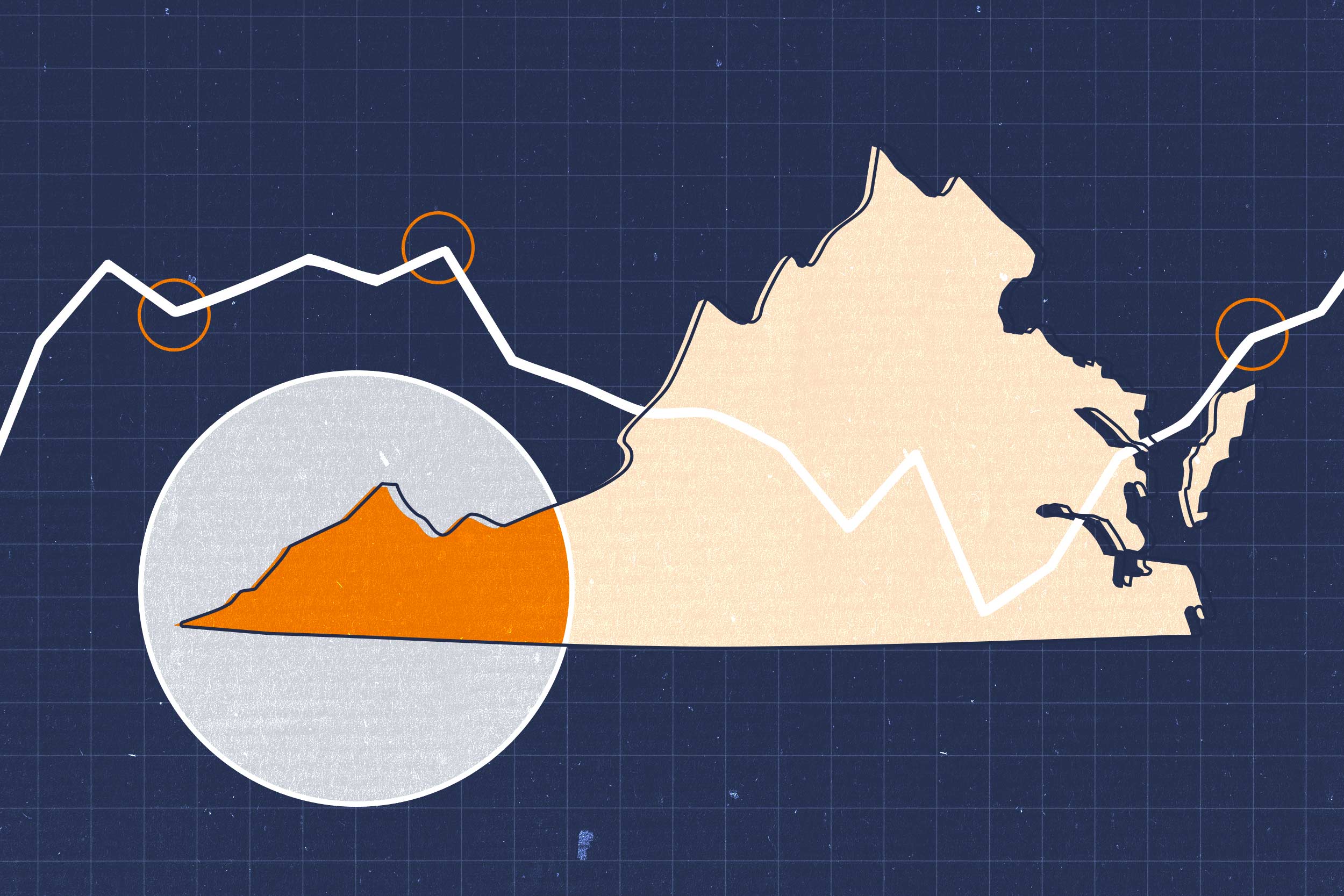For Southwest Virginia, it’s getting a little better all the time.
Rising housing prices in metropolitan areas and continuing post-pandemic remote work options are slowly changing Southwest Virginia’s economic and demographic fortunes, a report from the University of Virginia’s Weldon Cooper Center for Public Service shows.

Hamilton Lombard, a demographer for the Weldon Cooper Center and the report’s author, says more businesses are opening in Southwest Virginia than Northern Virginia as more remote workers move into the area. (Photo by Mitch Powers, University Communications)
Although the region still has an older and declining population, with more deaths than births, new residents are migrating into the area as housing prices in Tennessee and parts of Virginia increase and employers accept hybrid remote work arrangements.
“This has historically been the poorest part of Virginia, the area with some of the most negative population trends,” said Hamilton Lombard, the Cooper Center demographer who wrote the report. “For decades, the region was losing thousands of young adults, and we’re seeing that turnaround to where it’s now pulling some in.”
Remote work is one of the big drivers of the change. Data gathered by several national research groups indicates that while companies are bringing workers back to the office, most white-collar workers continue to work remotely, either full time or splitting their time between home and a central office.
“The persistence of remote work has effectively resulted in Southwest Virginia and much of rural Virginia becoming the outer suburbs of the large cities in the mid-Atlantic,” the Weldon Cooper report states.
As a result, regions like Southwest Virginia have become desirable alternatives.










